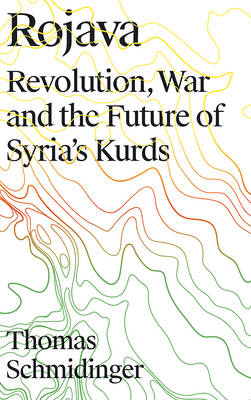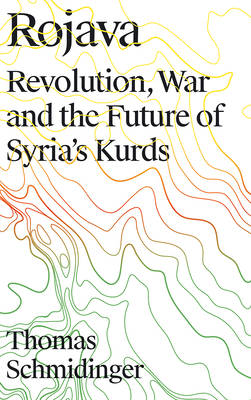
- Afhalen na 1 uur in een winkel met voorraad
- Gratis thuislevering in België vanaf € 30
- Ruim aanbod met 7 miljoen producten
- Afhalen na 1 uur in een winkel met voorraad
- Gratis thuislevering in België vanaf € 30
- Ruim aanbod met 7 miljoen producten
Zoeken
€ 34,45
+ 68 punten
Uitvoering
Omschrijving
The Kurdish territory of Rojava in Syria has in recent years become a watchword for radical democracy, communalism, and gender equality. This book, however, argues that much of how we see Rojava from the outside is a projection of the values of Western radicals whose understanding of the complexities of the situation are limited. Thomas Schmidinger has been working in Rojava for seventeen years, and here he gives us the clearest picture yet of the history, politics, and society of the region today. He sketches the historical background of the Kurds in Syria, then details the developments since the outbreak of war in 2011, including the establishment of the Kurdish para-state and ongoing conflicts between Kurdish parties about how it should be administered. Drawing on interviews with leaders from different parties, civil society activists, artists, fighters, and religious leaders, Schmidinger delivers an authentic, nuanced, unromanticized portrait of Rojava today.
Specificaties
Betrokkenen
- Auteur(s):
- Uitgeverij:
Inhoud
- Aantal bladzijden:
- 368
- Taal:
- Engels
Eigenschappen
- Productcode (EAN):
- 9780745337722
- Verschijningsdatum:
- 20/06/2018
- Uitvoering:
- Paperback
- Formaat:
- Trade paperback (VS)
- Afmetingen:
- 137 mm x 211 mm
- Gewicht:
- 408 g

Alleen bij Standaard Boekhandel
+ 68 punten op je klantenkaart van Standaard Boekhandel
Beoordelingen
We publiceren alleen reviews die voldoen aan de voorwaarden voor reviews. Bekijk onze voorwaarden voor reviews.











